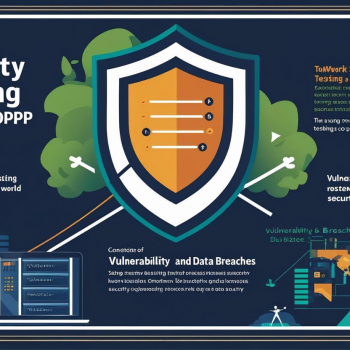
The Security Debt We’re Not Talking About — And Why It’ll Cost Us More Than Technical Debt
- Posted by Gayatri Mathkar
- On June 23, 2025
- 0 Comments
- Compliance testing, Cybersecurity best practices, Data privacy India, Data protection law India, DevSecOps, DPDP Act 2023, GDPR compliance, Indian cybersecurity law, Information security, Mobile app security, Security testing
Every tech leader knows about technical debt: shortcuts in code, quick patches, skipped documentation. It’s accepted (sometimes even strategic) in the race to deliver. But there’s a more dangerous form of debt silently accumulating in product teams everywhere: security debt.
What Is Security Debt?
Security debt refers to the risks and vulnerabilities knowingly or unknowingly embedded in your systems due to:
- Skipped code reviews or static analysis
- Unsecured third-party libraries or APIs
- Poorly managed access controls
- Delayed patching
- Lack of incident response plans
This debt doesn’t just slow you down later. It threatens your reputation, compliance posture, and investor confidence.
Why It’s More Expensive Than Technical Debt
While technical debt can lead to refactoring or performance issues, security debt leads to breaches, fines, and public loss of trust.
According to the 2023 Data Breach Investigations Report by Verizon:
- 74% of breaches involved human error or poor security hygiene
- 27% involved third-party software or supplier vulnerabilities
Hidden Costs of Security Debt
- Financial Fines: GDPR and India’s DPDP Act allow penalties in crores
- Reputational Damage: Customers and partners lose faith
- Team Burnout: Incident response eats up sprint cycles
- Missed Business: Delayed certifications, lost deals
A Real-Life Wake-Up Call
A mid-size tech firm we spoke with had deprioritized security during their MVP build. A year later, during a pre-acquisition diligence review, multiple vulnerabilities were flagged. The deal stalled, legal costs mounted, and the valuation dropped 20%.
The Doshaheen Approach: Pay Down the Debt Early
At Doshaheen, we advocate:
- Early-stage threat modeling
- Security integrated into sprint plans (DevSecOps)
- Automated code scans and VAPT at every major release
- Security training for developers
You can’t afford to treat security like a feature. It’s the foundation.
Final Thoughts
Security debt compounds silently. And the longer you wait, the harder it bites.
The next breach won’t care about your delivery deadline. Start building with security in mind.
Let’s run a security debt assessment and show you how to fix it fast.

